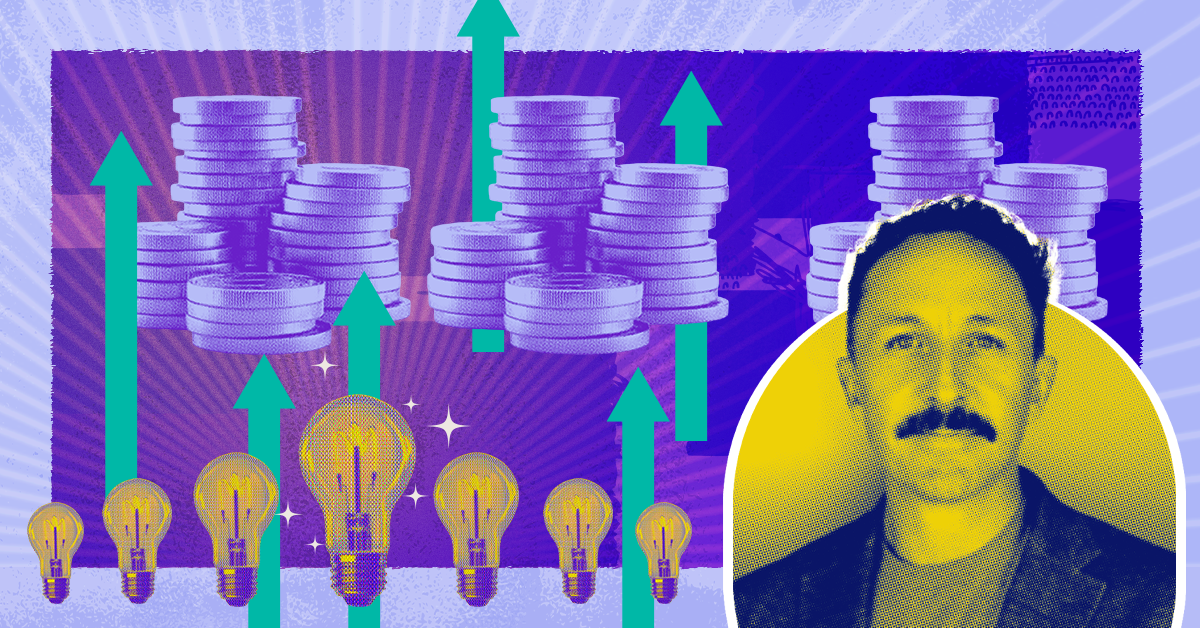Affiliate marketing suffers from a questionable reputation. And it’s not surprising given that consumer affiliate marketing can be a risky endeavor, rife with fraud, low-quality couponing sites, and brand-tarnishing discounts.
But affiliate marketing in B2B is a radically different equation. When executed well, it can be a low-risk and extremely effective way to sell B2B software. In this article, we’ll bust the most common myths about affiliate marketing, explain why it’s a powerful strategy in B2B, and give you some best practices to begin your own program.
Five myths about affiliate marketing that need to be busted
Myth #1: Affiliate marketing is just for B2C
Many folks first encounter affiliate marketing in their consumer lives. They see influencers on Instagram imploring their followers to buy a vitamin supplement using the link in their bio. Or they see spammy comments on Disqus embeds. Or they see promo codes shared on couponing websites like Honey or RetailMeNot.
What’s less common to encounter is affiliate marketing used in the B2B context. You may even encounter it without even recognizing it as affiliate marketing, since it can look so different from consumer affiliate marketing. It can be everything from a link in a member association’s newsletter to a link on a technology review website.
The reality is, many of today’s most successful B2B software brands rely on affiliate programs to sustainably grow their revenue. Unbounce, a no-code landing page builder, drives 25% of its new trial starts from its affiliate program. New trial starts are Unbounce’s most important marketing metric, since half of those trials convert into paid users. What’s more, affiliates unlock new audiences that the Unbounce team simply couldn’t reach without them. (Learn more in Unbounce’s case study.)
Myth #2: Content creators are the only kinds of affiliates
When people think of affiliates, they almost exclusively think about content creators who publish blogs and social media posts that promote products. But B2B affiliates can be any organization or individual you share an audience with.
Other SaaS applications that you integrate with and share a customer base with make ideal affiliate partners. For example, if a CRM integrates with a video marketing platform, that CRM would be a great affiliate or marketing partner for the video platform. The CRM company could send an email to their customer base, including that link, and then send new business to the video marketing platform.
Some of the most wide-reaching marketing partners can be banks. There are six banks in Canada that collectively have access to every single consumer in small business in the country. If a bank sends an email to all of their small business customers telling them to buy an accounting software, it can offer an incredible boost, even though most people wouldn’t think of banks as affiliates.
Affiliates can also be publishers and content syndicators, like CNET or G2. Folks in B2B should think about affiliates as anyone who has access to your prospective customer base and could promote your products to them using affiliate links. In many ways, it's just like partner marketing or co-marketing.
Read more:
Myth #3: Affiliate marketing is inherently risky
While consumer affiliate marketing can leave marketers vulnerable to fraud, the risk is close to zero in B2B. In B2C, there's a long history of paying for top-of-funnel metrics like clicks and pageviews. These can easily be flooded with fraudulent activity from bots or click farms.
But in B2B, these metrics aren’t nearly as sought after. Today’s B2B businesses care about revenue, especially as marketing teams become increasingly responsible for driving metrics further down the funnel. Since you typically only pay affiliates once they close revenue for your business, it’s nearly impossible to game the system. This means you can try many affiliates without worrying too much about the results they’ll drive.
Myth #4: You need vertical alignment with your affiliates
“Something that a lot of people get wrong is they think they need to work with an affiliate partner that is in their vertical, but that's actually not the case,” says Luke Swanek, one of PartnerStack’s co-founders.
“For example, QuickBooks affiliates don't need to talk about bookkeeping on their blogs. They just need to reach the end customer that QuickBooks is pursuing, which is small business owners,” Luke explains. “Ideal affiliates for QuickBooks would include the National Association of Realtors, the Canadian Federation of Independent Business, or Canadian Small Business Association.”
What matters in a B2B affiliate isn't vertical alignment, but customer alignment. If an association, a membership-based organization, or publication has an audience with your ideal customers, then they’re a perfect fit. Curious which ones are a fit for your customers? Start asking them where they get their news and what conferences they attend.
Even if these organizations have nothing to do with the product you are trying to sell, they make excellent co-marketing and affiliate partners to work with since they have access to your audience. Reach out to these organizations and offer them the opportunity to be an affiliate. Make sure you emphasize how the partnership will provide massive value to their audiences, often in the form of exclusive discounts.
Myth #5: The same playbook will work for B2B and B2C affiliates
The goal of consumer affiliate is often a one-time, transactional purchase. But the goal in B2B is to have customers continually purchase a subscription. Naturally, the same tactics won’t work for each.
“Software isn't sold like a pair of jeans,” says Nikita Zhitkevich, Director of Channel Partnerships and Alliances at PartnerStack. “There is a lot more variability in the B2B selling process than there is in B2C. Partners in B2B need to be more strategic — unlike in B2C where you don’t necessarily need any deep or specific expertise to make a product look cool.”
What’s more, there's really not a ton of loyalty between consumer affiliates and the brands they represent. “A B2C affiliate could sell a Nalgene water bottle and Bose headphones. They're two completely different things. Then I could sell a YETI bottle instead of a Nalgene, and it doesn’t change anything,” says Luke.
But in B2B, you’re building long-term relationships with a set of affiliates that your customers can trust, and who have a finger on the pulse of the software ecosystem in your space. “B2B affiliates need to represent a connected stack of solutions that work harmoniously together to provide value to a business owner. In consumer, it's almost impossible to do that. Are your headphones and your water bottle complementary? Sure. But do they integrate? Of course not,” says Luke.
Benefits of B2B affiliate marketing
Once you’ve discarded the common misconceptions about affiliate marketing, you can see the strategy for what it truly is: a significant strategic growth opportunity. Here are three key benefits of B2B affiliate marketing:
1. It's lower risk than other paid channels
Since you’ll typically only pay affiliates when revenue is recognized, you can’t lose a whole lot on an experiment with affiliate marketing. You can compare this to other forms of paid advertising where you can pay a lot for clicks and impressions that never convert into revenue for your organization.
There’s also not a lot of overhead to get started. You simply need a partner marketing person who drafts a program, and some adjustments to your payment and account user settings to manage resold accounts. (Or allow value-added resellers to manage those accounts on someone’s behalf.) In the early days before your program gains traction, you don’t need a full-time hire or dedicated software. You can ask for manual reports from the product or accounting team and tabulate payouts in a spreadsheet. While you’ll want to invest in these things once your program takes off, many folks wait until the nascent program starts earning a return on their investment.
Related: 5 green flags to look out for when joining an affiliate program.
2. It allows affiliates to receive recurring commissions — while driving low-margin revenue for your business
Affiliate marketing is very attractive to B2B affiliates since it presents them with an opportunity to earn recurring income. The revenue stream may start small, but it will build once they’ve amassed a number of converted customers and begin receiving a monthly cut of each of their contracts.
Historically, flat fees were more common in marketing partnerships. You might pay an influencer $10,000 to send an email campaign out to their customers or their members promoting your product. Now you could offer them $2,500 and then a recurring 15% revenue share that follows. And in doing so, they’ll earn even more money for an extended period of time.
Not only is this an efficient way for your company to convert new customers, this also means your affiliates have a vested interest in helping your company retain customers long term.
3. Your marketing messages will be received favorably coming from a trusted source.
If the last decade of marketing has taught us anything, it’s that people hate interruptive marketing. They dread pop-ups over the article they’re trying to read, or thinly veiled product pitches disguised as unbiased advice. If your product promotion comes from a trusted advisor who already has their attention, prospects will be much more likely to pay heed.
Not only that, but typically, vendors will offer affiliates an exclusive discount or special promotional offer to pass onto prospects. (For example, get six months of a graphic design software free, or 50% off of your first year.) This allows your affiliates to feel good about passing on value to their networks, which in turn, builds yours.
Seize this underutilized revenue-generating opportunity
Now that you know what B2B affiliates look like — and how different they are from their B2C counterparts — there’s no reason not to experiment with this channel. Once you see how effective affiliate marketing can be as a growth channel, you’ll wonder why you didn’t start sooner.

















